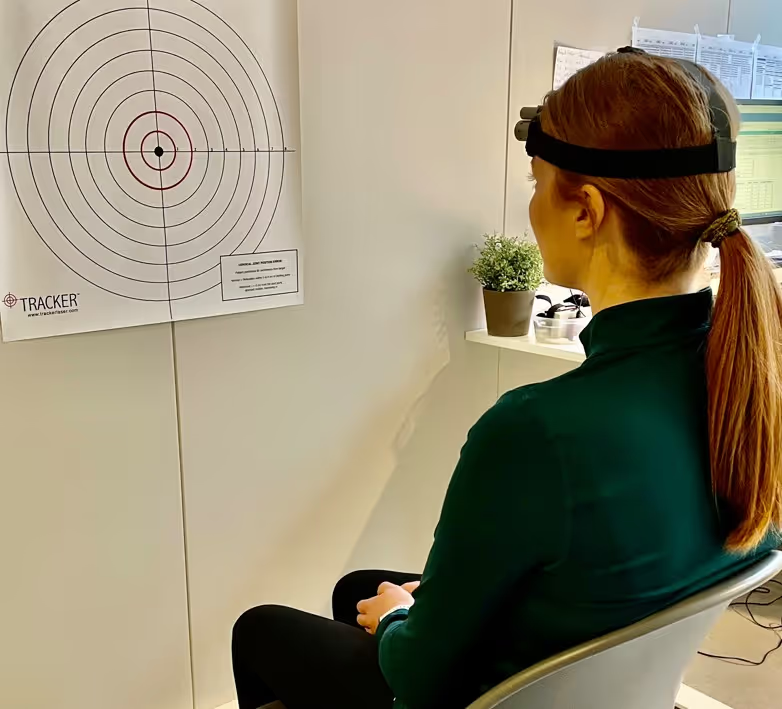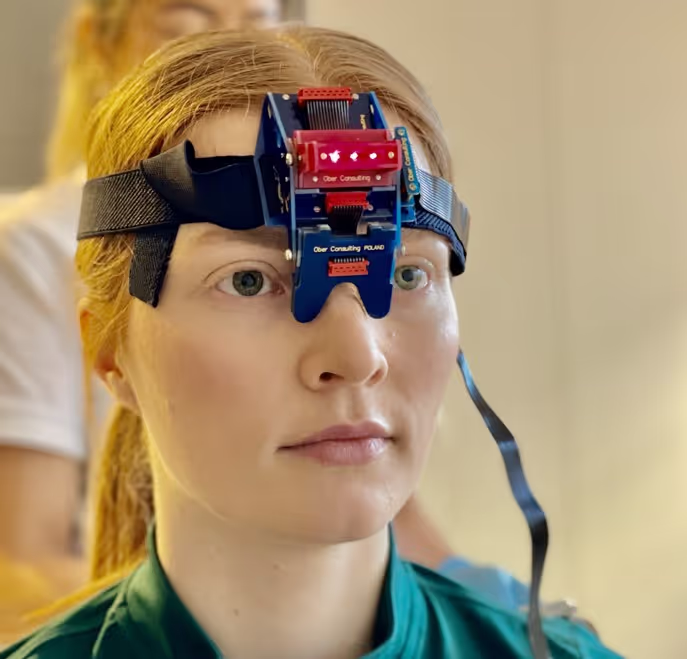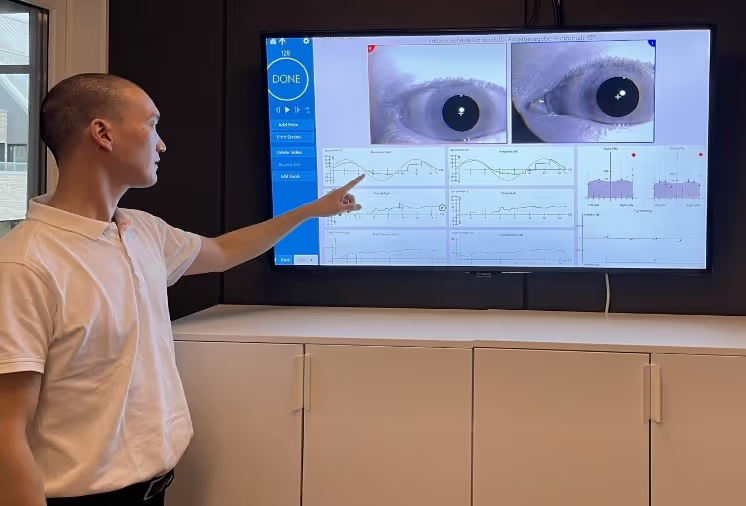The invisible symptoms are our specialty

For many people with neurological disease or injury, it is the invisible symptoms that most affect their quality of life. We specialize in tailoring rehabilitation that can improve the invisible symptoms and quality of life.
The different neurological diseases and injuries have different characteristic symptoms as they affect different parts of the brain and nervous system. For example, movement disorders such as Parkinson's disease and dystonia. These diseases cause degeneration in specific parts of the brain that control signals to the muscles. Parkinson's disease causes tremors, stiff and slow movements, impaired balance and impaired facial expressions, among other things. While dystonia causes slow involuntary and twisting muscle movements that result in locked postures with accompanying discomfort and varying degrees of pain.


Multiple sclerosis (MS) causes more varied symptoms as the disease can attack the entire central nervous system. Both parts of the brain and spinal cord involved in sending signals to and from muscles, involved in sensitivity to pain and touch, vision and hearing. Symptoms of MS can thus vary widely and can be more difficult to diagnose than other neurological diseases. Symptoms can include numbness, decreased muscle strength or paralysis, tremors, dizziness, impaired balance, double vision, and hearing loss, among others.
Traumatic head injury such as chronic concussion syndrome (post-concussion syndrome) and diffuse axonal injury can cause a variety of different symptoms. The most common symptoms are headache, dizziness, stiffness and pain in the back and neck, high sensitivity to sensory input, fatigue and decreased threshold to activity.
Although the different diseases and injuries attack different parts of the nervous system and brain, and cause different symptoms. Some common symptoms are seen in most of them. These include fatigue and tiredness, reduced threshold to activity and sensory input before symptoms are triggered or worsen, and impaired concentration and memory. These symptoms are likely due to a chain reaction of miscompensations and secondary brain dysfunctions that make it, among other things, more challenging and effortful to coordinate and process different sensory inputs, more challenging to coordinate the activation of several different parts of the brain with different properties simultaneously that are needed to perform both physical and cognitive tasks, while also seeing both over- and under-activity in parts of the brain. This complex dysfunction causes brain fatigue and is thought to be one of the main causes of invisible symptoms such as fatigue and exhaustion, hypersensitivity to sensory input, and more challenges with cognitive and executive challenges.
These are some of the most common complaints of patients who contact Brain Camp:
- Dizziness
- Impaired balance and coordination
- Headache
- Visual disturbances
- High sensitivity to sensory input
- Fatigue and exhaustion
- Pain and stiffness in muscles and joints.
- Difficulty controlling movements.
- Difficulty initiating movements.
- Tremors and twitching.
- Reduced tolerance to activity before symptoms are triggered or worsen. Including physical, mental and social activity.
- Sleep difficulties including difficulty falling asleep, often waking up at night and not feeling rested in the morning.
- Reduced tolerance to stress.
- Reduced capacity or ability to concentrate or perform other cognitive tasks.
Cognitive tasks also include memory, learning, the ability to gather and process sensory input, conceptualization and other logical abilities, and the processing and production of language.
Impaired capacity or ability to perform executive tasks that are essential to carry out actions effectively and efficiently.
Executive functions include coordinating and processing sensory impressions and thoughts so that one can, among other things, assess situations, make plans, initiate the plans and make appropriate changes to complete the action successfully.



